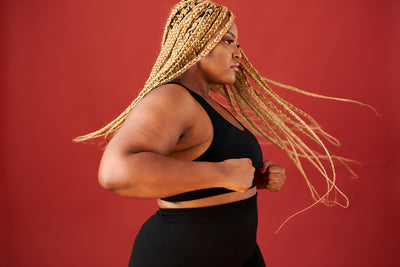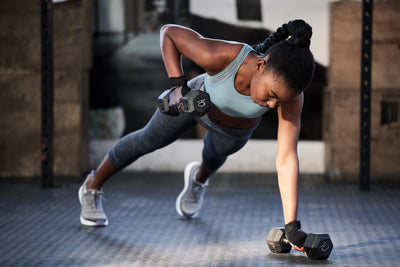True confession time: When I read that Beyonce weighed more than 200 lbs during her pregnancy with twins, Rumi and Sir, my first and only thought was, “I can’t believe this is the thing I have in common with Beyonce.” By this, I didn’t mean being pregnant with adorable twins.
Sometimes the realization that you and a beloved celebrity are the same weight can be crushing. Just ask comedian KevonStage, who found out he was the same weight as Dwayne “the Rock” Johnson.
With the realization you are the same weight, can also come the realization your poundage and their poundage is not the same. That’s because the number on a scale is just that— a number. It doesn’t actually tell you what’s behind that number.
A quick physics lesson
In the layperson weight discussion, the words ‘mass’ and ‘weight often are used interchangeably. That’s our first mistake. Mass is the amount of matter in an object. Weight is a measure of the amount of force that gravity exerts on that object and weight is constantly changing.
When you step on a scale, it’s showing an estimate of your mass based on the force your body exerts on it. That’s why you can step on a scale and weigh 150 lbs one minute and then 156 lbs a few hours later. The number on the scale can also be affected if you move the scale from one spot to another in your home without calibrating. So now we’re all losing our minds thinking that one Samoa Girl Scout Cookie we ate caused us to gain 6 lbs but really you probably applied more force stepping on the scale after you moved it from your carpeted bedroom to the hardwood floors of your rumpus room.
While the number on the scale does matter — clearly if you’re a candidate for My 600-lb Life, it is important for health and lifespan to get that number down. But, the composition of your body weight can tell you much more about your overall health and help tailor a plan to improve your overall health.
What is body composition?
Body composition is the reason why KevonStage and the Rock, two men of the same weight, can look so different. Our bodies are mostly made up of bones, fat, muscle, and water. When you’re talking about body composition, you’re talking about the percentage of elements. For the average adult woman, about 55% of their total weight is water. Your bones make up 7-15% of your body weight. The rest is muscle and fat and varies from person to person.
Water
Water is essential for living. Every cell in your body needs water to function. It’s estimated the lungs are 83% water, muscles and kidneys are 79% water, the brain and heart are 73% water, and even your bones are 31% water. So it’s not shocking that most of your weight comes from water.
The amount of water in your body varies depending on the fat in your body. Someone who is very obese can have as little as 15% water in their body because body fat tissue retains less water than lean tissue.
Bone
Your bones are basically what’s stopping you from looking like a melting bowl of ice cream. The bones also protect your organs and — important for body composition — it stores minerals, which helps buffer the pH in your body.
Fat
Fat often gets a bad rap. But it serves an essential purpose. Fat stores energy, and insulates the body and organs. Also for women, who tend to have more fat than men, it helps with childbearing and other hormonal functions.
For your health, it’s important to note where the fat is stored. There are three locations:
- Subcutaneous fat: this is the fat just below the surface of the skin. It serves as insulation and stores energy. This type of fat can be found throughout the body but is not linked to obesity-related conditions.
- Visceral fat: also known as belly fat, this fat surrounds the abdomen and between organs. When there is too much belly fat, your belly will protrude. The fat gets into the abdominal cavity and your organs. This type of fat is linked to obesity-related diseases. Studies suggest that the amount of visceral fat can predict your risk of developing certain diseases and life expectancy much more accurately than BMI or waist circumference.
- Intramuscular fat: this kind of fat, found in your muscles and is a source of energy that can be used during exercise. Having fat in your muscles isn’t bad but too much can increase insulin-resistance and obesity-related conditions.
Muscle
There are three types of muscle:
- Skeletal — muscle attached to your bones
- Smooth — muscle lining the walls of blood vessels and digestive organs
- Cardiac — muscle in the heart responsible for the rhythmic contractions of your body’s vital organs
Your skeletal muscle is the type most significantly influenced by diet and exercise. But it does more than just give you a shapely butt. These muscles store energy and are an important source of amino acids that support protein synthesis.
How body composition affects your health
Balance is important, especially when it comes to body composition. We all know having too much body fat can lead to significant health conditions, but so can having too little body fat. Unbalance body composition can lead to many complications including:
- High blood pressure
- Diabetes
- Non-alcoholic fatty liver disease
- Obstructive sleep apnea
- Menstrual abnormalities
- Heart disease
- Low energy
- Compromised immune system






Leave a comment